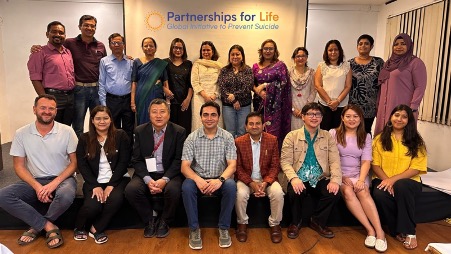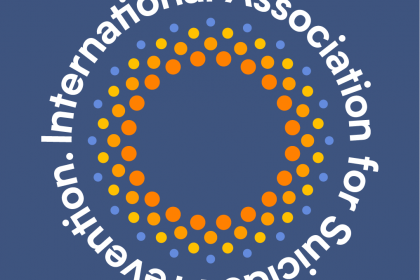In February 2024, Partnerships for Life (PfL) held its first South East Asian training workshop. The two-day workshop was led by Dr Anish Cherian and Professor Vikas Menon, regional co-coordinators. Professor Lakshmi Vijayakumar (regional coordinator) supervised the proceedings and guided the discussions. There were 20 attendees from nine countries: Bangladesh, Bhutan, India, Indonesia, Maldives, Nepal, Sri Lanka, Myanmar, and Australia.
The workshop involved engaging and productive discussions focused on opportunities, challenges, and potential solutions to further advancement of national suicide prevention strategies. Ten key priority areas were identified:
- Decriminalisation of suicide.
- Increasing awareness of mental illness in the community and reducing stigma.
- To have a dedicated national helpline to support distressed and potentially suicidal individuals.
- To have a national suicide registry.
- Multisectoral collaboration to boost prevention efforts.
- Have a national suicide prevention strategy that is separate from a mental health strategy.
- More funding for suicide prevention efforts, including research and addressing gaps in human resources.
- Focus on vulnerable subgroups who may need greater support such as pregnant women, older adults, LGBTQIA+, persons with disabilities, and other socially marginalised groups.
- To have postvention support groups.
- Involving people with lived experience when designing interventions.
Whilst acknowledging the challenge of preventing suicide, attendees discussed strategies that included both top-down (e.g., political advocacy) and bottom-up (e.g., community-driven) ideas. It was noted that fostering contacts among policymakers and influencing strategic political advocacy are needed to drive change. In turn, this can help with developing suicide registries and sharing data collection strategies and policies. Further, political will may help build capacity through two avenues: first, funding for training and inclusive mental health sensitive curricula from schools to universities; and, second, use of digital and/or social media for awareness public health campaigns. Additional advocacy prospects include non-government organisations that could potentially help with implementation of programmes and/or health service provisions by reducing barriers. Attendees also stressed the importance of involving people with lived experience and incorporating their perspectives in suicide prevention strategies. Similarly, fostering regional networks and collaborations (e.g., PfL) to pitch, exchange, and adapt ideas was identified as vital for developing approaches that are cost-effective and best practice for the region.
The following action items were decided:
- Draft a joint commentary paper based on key country priorities.
- Create a joint SEAR situation analysis paper for possible publication.
- Each country to identify two suicide prevention activities for priority action.
To read the full report, click here.





